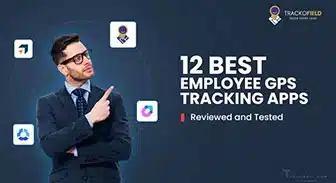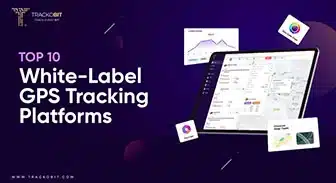-
TrackoBit
Manage commercial vehicles with the new-age Fleet Management Software
TrackoBit -
TrackoField
Streamline your scattered workforce with Field Force Management Software
TrackoField -
Features Resources
-
Blog
Carefully curated articles to update you on industrial trends. -
White Paper
Insightful papers and analysis on essential subject matters. -
Glossary
Explore an alphabetical list of relevant industry terms. -
What’s New
Get TrackoBit & TrackoField monthly updates here. -
Case Study
Explore the cases we solved with our diverse solutions. -
Comparisons
Compare platforms, features, and pricing to find your best fit.
-
About Us
Get to know TrackoBit: our team, ethos, values, and vision. -
Careers
Join the most dynamic cult of coders, creatives and changemakers. -
Tech Support
Learn about our technical support team and services in detail. -
Events
Check out the exhibitions where we left our marks and conquered. -
Contact Us
Connect with us and let us know how we can be of service.
Vehicle Tracking Without GPS: Everything You Need to Know
- Author:Tithi Agarwal
- Read Time:10 min
- Published:
- Last Update: December 23, 2025
Table of Contents
Toggle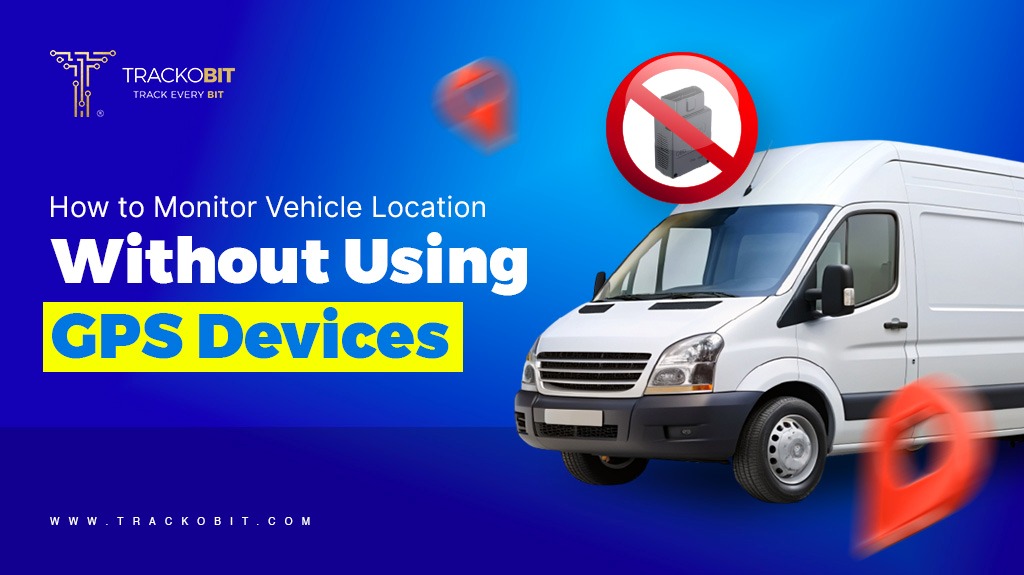
Are you looking for a way to track vehicles without installing GPS tracking devices? It’s easy! Why not use mobile tracking apps or SIM-based tracking done by TrackoBit?
Table of Contents
Toggle
As a fleet owner or manager, you know how crucial it is to keep track of your fleet’s location and performance metrics. There are several ways to achieve this, with GPS trackers being the most efficient. However, some businesses opt for alternative methods to track their vehicles without GPS.
TrackoBit offers solutions for these businesses with our phone tracking app and SIM-based tracking. While these methods may not depend on GPS trackers, they are still effective and cater to fleet businesses focusing on vehicle location tracking without GPS trackers.
Why do some companies prefer non-GPS tracking methods? Let’s explore the reasons behind this preference and how TrackoBit is supporting such businesses with innovative tracking solutions.
What’s the wait for? Let’s get reading!
Why is it Necessary to Track Vehicles or Fleets?
Fleet tracking is a system that monitors the exact location of remote vehicles. Modern fleet tracking software leverages GPS technology to provide precise, real-time information on vehicle location.
This tracking is very ranges from phone-based tracking to custom GPS devices integrated into the vehicles. With the help of telematics systems, fleet managers gain relevant data like drivers’ driving habits, idling time, and collision data. All this data gets stored and either revisited or utilized to improve fleet operations.
Fleet tracking and telematics have advanced greatly in recent years, and more metrics can now be collected easily. Beyond just location, such systems can now track a whole range of vehicle data and transform how you manage your fleet, saving you time and money.
Here are some of the reasons why GPS tracking of vehicles is important:
1. More efficient use of vehicles
Knowing vehicle location and status at all times can also help you stay agile and responsive to any new tasks, such as unexpected changes, driver absences, etc. This can improve operational efficiency significantly and help you utilize each vehicle as optimally as possible.
2. Fuel savings
Fleet tracking can cut fuel use by up to 11%. By helping you find the most efficient routes and optimizing fleet use, vehicles often need to travel shorter distances. This can significantly reduce your fuel budget and reduce your company’s carbon emissions.
3. Safer driving
With fleet tracking systems monitoring vehicle use and driving habits, it’s simple to identify dangerous areas and high-risk driving habits and encourage safer practices across your fleet.
4. Lower insurance premiums
Having fleet tracking and telematics systems installed in your fleet of vehicles is associated with safer driving and a lower accident rate. Insurance companies recognize this and generally offer lower insurance premiums to organizations using the systems in their fleets.
5. Customer service improvements
Fleet tracking can translate into better customer service in a number of ways. For example, deliveries and other jobs involving vehicles can be completed more quickly, resulting in more satisfied customers.
6. Big Data Management
Fleet tracking devices and software make it incredibly easy to collect large amounts of data on your vehicle location, fleet usage, driving habits, collisions, and much more, then store, analyze, and visualize it.
7. Vehicle longevity
Safe driving habits and fewer collisions can result in less vehicle damage, less maintenance, and a longer fleet lifespan.
8. Real-time updates and alerts
With the right fleet tracking systems using advanced GPS tracking and data transmission, you can reliably receive real-time updates on many key vehicle metrics.
But Some are Opting for GPS Tracker-free Vehicle Tracking Solutions Because…
Let’s explore why some of the businesses with any transporting component are using smartphone or cell phone tracking instead of GPS trackers:
1. Budget Restraints
Let’s face it: Businesses, especially startups, are unwilling to spend more than they need to. This means that GPS trackers will probably not be on the list of things that the business really needs. After all, a considerable amount must be invested in installation charges, device fees, hidden dues, and so on for many vehicles.
2. It Is not the First Step
Most business owners do plan on getting sophisticated trackers for their fleet but simply think that now’s not the time (don’t we all?)
3. Avoiding Delays or Wear-&-tear
Some users simply wish to avoid delays, so they skip the hardware installation part, download the app, and start with cell phone-based tracking. Many fleet owners do not want to remove their vehicles’ dashboards to install GPS tracking devices. The reason could be that the vehicles are rented, and if not done properly, this can depreciate the value of the vehicle and even harm the vehicle’s functioning.
However, this issue can be circumvented by using simple plug-and-play devices. These devices are pretty simple to set up and take no more than a couple of minutes to get started.
4. Not Ready To Commit
This is one area where GPS trackers have not really made things any easier. Many companies demand users stay bound by contracts for an extended duration, which may seem intimidating to people—and it is completely understandable.
How to Track Vehicles without GPS Tracking Devices with the Help of Mobile Tracking App
Now, what would you do? How would you track your vehicles and gain all the actionable data?
The other way is to use vehicle monitoring without GPS devices, such as mobile GPS tracking apps. These solutions include tracking drivers instead of vehicles, as the app uses mobile GPS tracking. The app is installed on the driver’s phone.
When you decide to track a fleet without GPS devices, you will not get data on vehicle health, driver behavior events, fuel consumption, time spent idling, maintenance needs or vital telemetry data gained with the help of the GPS trackers.
Furthermore, vehicle location tracking without GPS trackers is less accurate than a fleet manager would require. However, the mobile-based tracking app provided by TrackoBit is of some help. Such as:
A. Real-time tracking
The basic principle of fleet tracking is knowing precisely where all of your fleet vehicles are at a given moment. This is called real-time location tracking. This way, you don’t simply get updates about where your vehicles are headed but also get to see them live, as they move, on your screen.
The interface is quite simple: you see a map with landmarks dotted across it to help you orient yourself. Also, there are the vehicles, as icons, moving on the map as those vehicles move in real time. You can contact the drivers if you feel they’re deviating off course. But of course, you won’t know if they are overspeeding or misbehaving as you do not have a GPS tracking device.
B. Tracking Hours of Service
The manager must supervise HOS compliance, but recording drivers’ working hours is only possible by deploying GPS trackers. You need to be able to track billable hours and compensate your drivers accordingly, and a device GPS-free vehicle tracking app is a perfectly viable tracking tool. It does so by monitoring when the driver marks its attendance and when it logs out.
C. Allocating Tasks
Task assignments or trip details can be assigned to the drivers via the app. These details contain trip information, scheduled stops, rest breaks, delivery deadlines, halts for refuelling, the route to be undertaken, consignment details, and more. The driver clarifies the journey, making the trip smoother. All this can be done with non- GPS tracking systems for vehicles.
D. Attendance Marking
Drivers can mark in/out their attendance remotely with TrackoBit’s smartphone app. This helps ensure compliance with regulations, location, and HOS, which is not more than 8 hours for drivers. It is especially helpful with long-haul journeys.
For example, commercial goods vehicles are prohibited in Delhi between 7 a.m. and 11 p.m. So, trucks and other goods carriers that arrive early simply park on the expressway before the border and wait, their drivers using the time for dinner or to catch a nap. Here, the attendance marking feature helps log the time the driver started and ended their journey and ensure that they follow the guidelines.
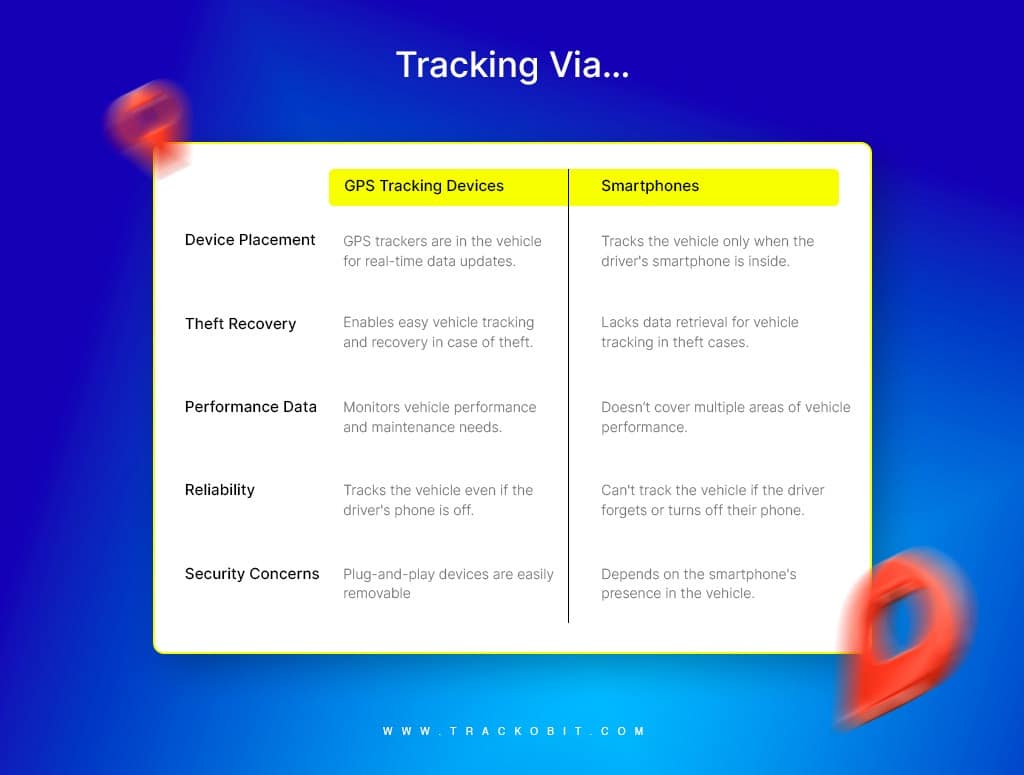
E. Real-time Communication
Using a smartphone tracking app for GPS-free vehicle tracking solutions will keep fleet managers updated on location while allowing for real-time communication between you and your on-road drivers. A good solution also lets you set up notification criteria to prioritize concerns and start procedures to address them.
A mobile app is typically one of the value-added services that an app-based fleet tracking service may offer to attract additional subscribers.
F. Expenditure Tracking
It is given that drivers on the trip will incur expenses such as refuelling, food and beverages, and emergency repairs, to name a few. The app lets them upload their expense receipts onto the platform by clicking photos. The reimbursement request is automatically sent to the managers in the set hierarchy. Thus speeding up the process.
G. Reports
Fleet managers can access basic reports, such as HOS, expenses incurred, trip duration, attendance logged data, and operating costs. However, some critical vehicle data cannot be accessed due to the lack of GPS trackers.
Read Blog – How to Track Vehicles Without GPS?
How does SIM Tracking Help with Vehicle Tracking?
Another way to track cars is GPS-free vehicle tracking solutions like SIM tracking. No, do not confuse it with cellular/smartphone tracking. In smartphone tracking, you are tracking the cellphone device. SIM-based tracking is all about determining the location of the vehicle/person with the help of a SIM. It shares the geographic coordinates derived from the nearest cellular tower. As the vehicle/employee moves, the SIM keeps sharing the data on a regular interval that you receive on the app.
It may not be as sophisticated as GPS tracking software, but it is quite efficient at monitoring location and time. It is more affordable than conventional tracking solutions, as you do not need to install a device or pay for its maintenance to get real-time tracking services.
This method of vehicle tracking using cell towers is beneficial if you are looking for-
- Cost-effective tracking solution
- Hassle-free installation
- No term payments, just pay-per-use
- No wear and tear
- Not dependent on internet connection
- Easy to download and share reports
This method is undoubtedly a good start for startups or companies with smaller fleets; minute tracking is not one of their prime concerns. The locational data gained is not as accurate as you would want and has some lag.
What are Some of the Most Popular Ways to Track Your Vehicles?
- GPS Tracking Device: GPS trackers connect to satellites to determine location. They allow you to track the location of devices and vehicles in real time and can be useful for fleet management, asset tracking, and personal tracking. They can be portable, plug-and-play, or hardwired.
- Delayed Time Trackers: These collect and store data for later use, typically with no or low monthly fees.
- OBD-II: Track vehicles via an OBD-II GPS tracker. This small, plug-and-play tracking device is easy to install in your vehicle. It can be plugged into a vehicle’s OBD II port to collect data about location, speed, vehicle health, maintenance requirements, etc.
- RFID Tracker and Readers: Radio-frequency identification (RFID) is a technology that uses radio waves to track objects and people by attaching tags containing information to them. Because of its limited range, it is best used in a warehouse or facility to track vehicles, equipment, inventory, individuals, assets, etc.
Track Vehicles Without GPS Devices with TrackoBit
Whether you choose GPS or non-GPS tracking methods, effective fleet management is crucial for maximizing efficiency, reducing costs, and ensuring safety. GPS tracking offers precise, real-time data and a plethora of insights into vehicle performance and driver behavior. However, for businesses with budget constraints or specific needs, TrackoBit’s phone and SIM-based tracking solutions provide a viable alternative.
As technology continues to advance, solutions like TrackoBit ensure that all fleet-dependent businesses have access to the tools they need to succeed. Ready to transform your fleet management? Explore TrackoBit’s innovative solutions today and choose the one that best suits your business needs.
Frequently Asked Questions
-
How to locate vehicles without GPS?
You can locate vehicles without GPS by using phone tracking apps or SIM-based tracking, which leverages cellular towers to provide location data. These methods offer a cost-effective alternative for basic vehicle tracking needs.
-
How to track cars without satellite navigation?
To track cars without satellite navigation, use methods like cellular network triangulation, RFID tags, Wi-Fi tracking, or installing a telematics system.
-
How to track vehicles using cell towers?
Vehicle tracking using cell towers is done through sim-based tracking where you receive geographic coordinates derived from the nearest cellular tower. As the vehicle/employee moves, the SIM keeps sharing the data on a regular interval that you receive on the app.
-
How to keep track of cars without GPS?
Tracking cars without GPS devices can be done through sim-based tracking or cellphone tracking in which you track the location of towers or devices respectively.
-
How to track a vehicle location without GPS?
Cellphone tracking, RFID tracking, OBD GPS trackers, and SIM-based tracking are some of the options for tracking vehicles without GPS.
Tithi Agarwal is an established content marketing specialist with years of experience in Telematics and the SaaS domain. With a strong background in literature and industrial expertise in technical wr... Read More
Related Blogs
-
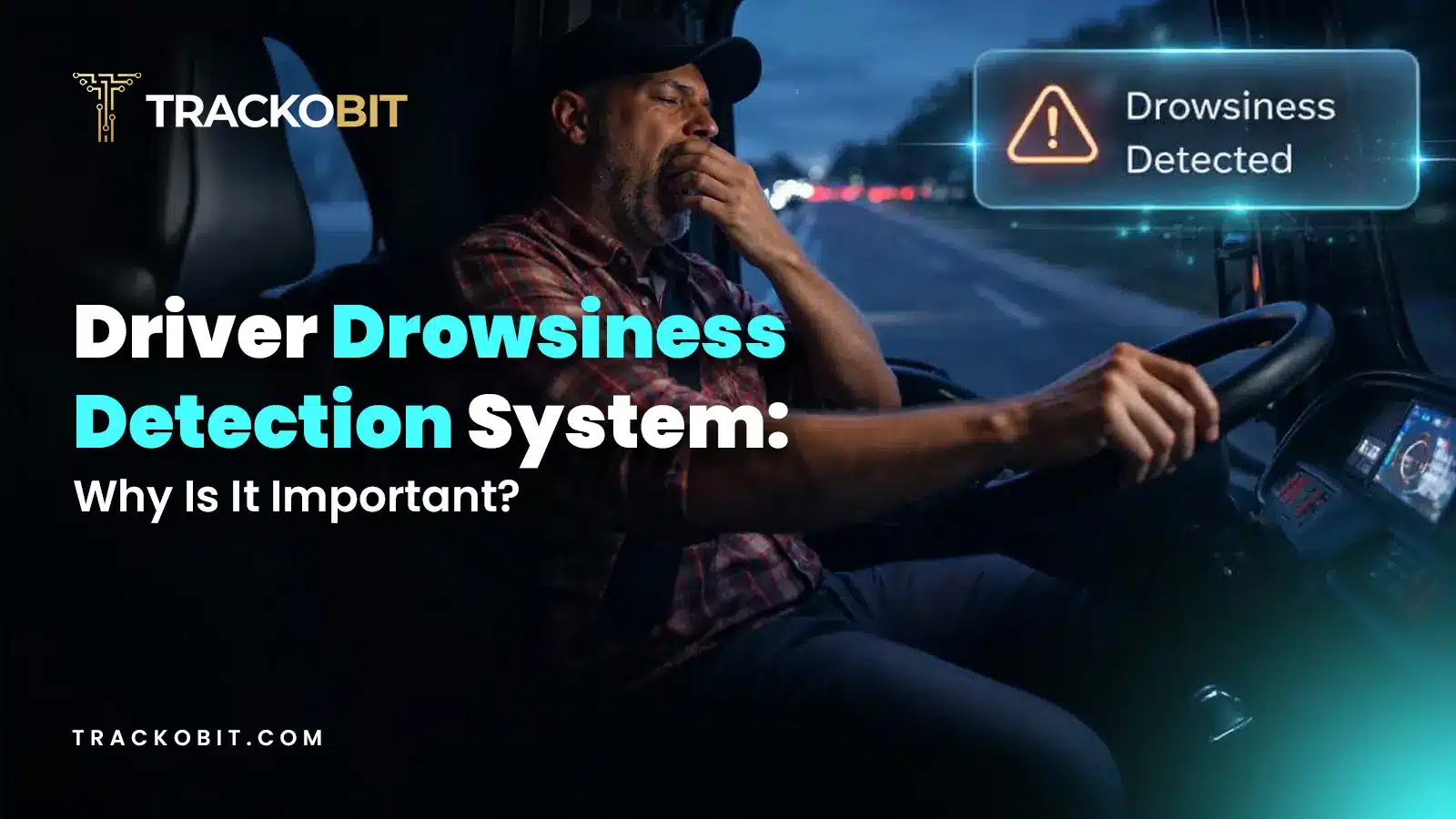
Why is Driver Drowsiness Detection System Important for Fleet Management?
Shemanti Ghosh February 4, 2026A driver drowsiness detection system is critical for fleet management. It helps prevent fatigue-related accidents and reduces operational risks through…
-
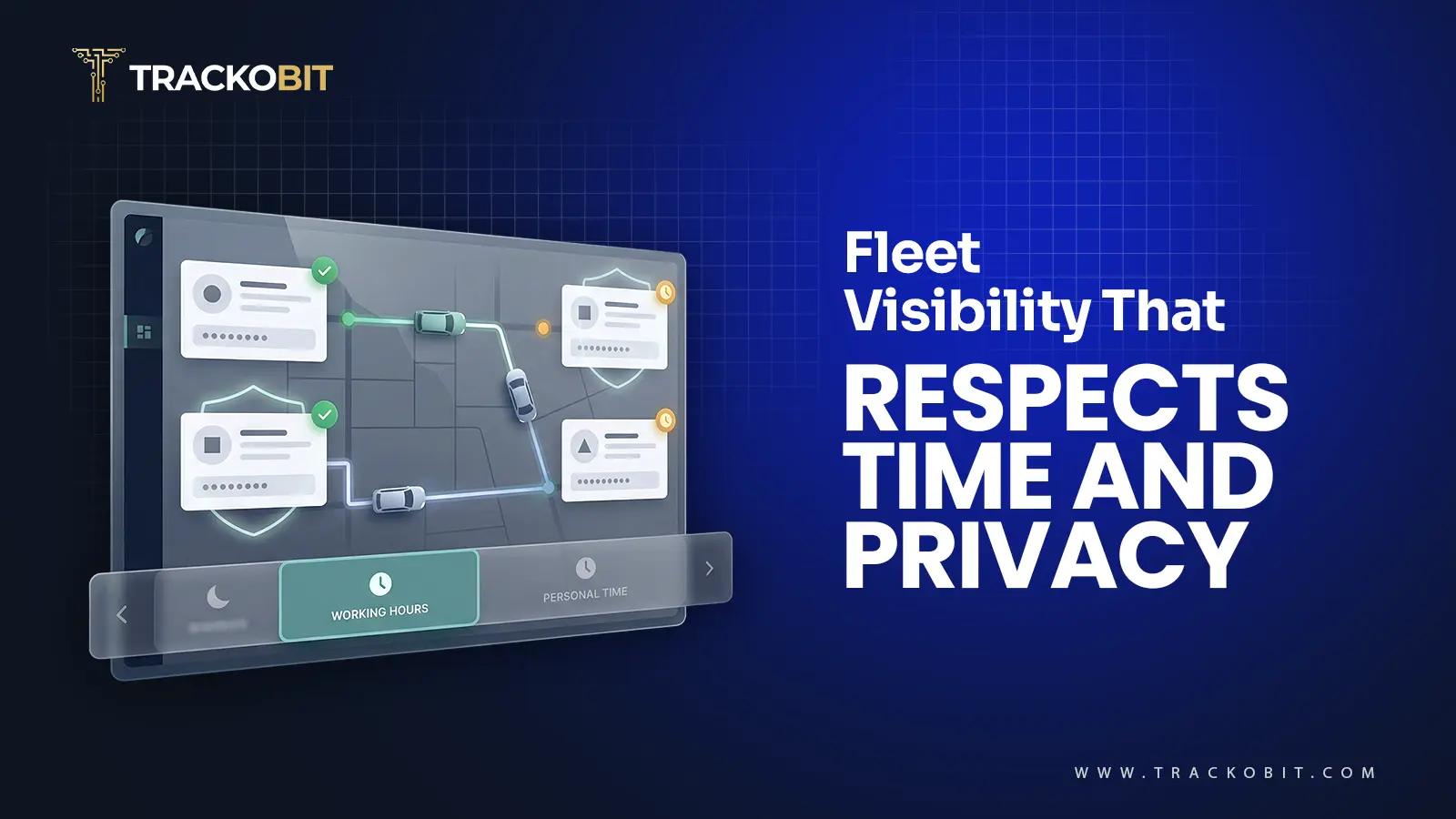
When Tracking Needs a Clock: Rethinking Fleet Visibility
Tithi Agarwal December 24, 2025Read on to understand why fleet tracking works better when it follows working hours. Because visibility should support operations, not…
-
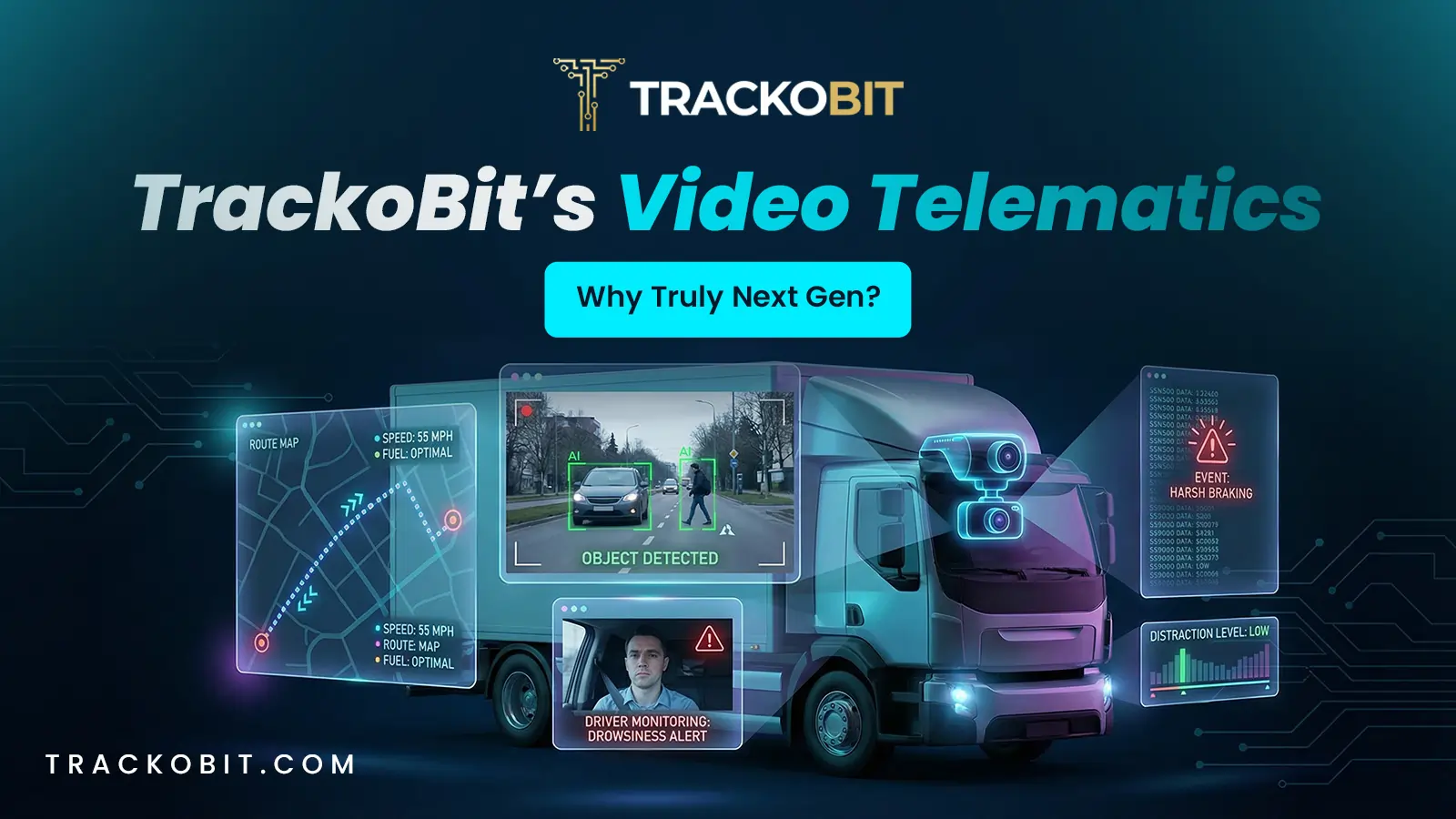
What Makes TrackoBit’s Video Telematics Software Truly Next-Gen?
Shemanti Ghosh December 17, 2025TrackoBit’s video telematics software blends smart video intelligence with full server control. The result? Superior fleet reliability and safety.
-
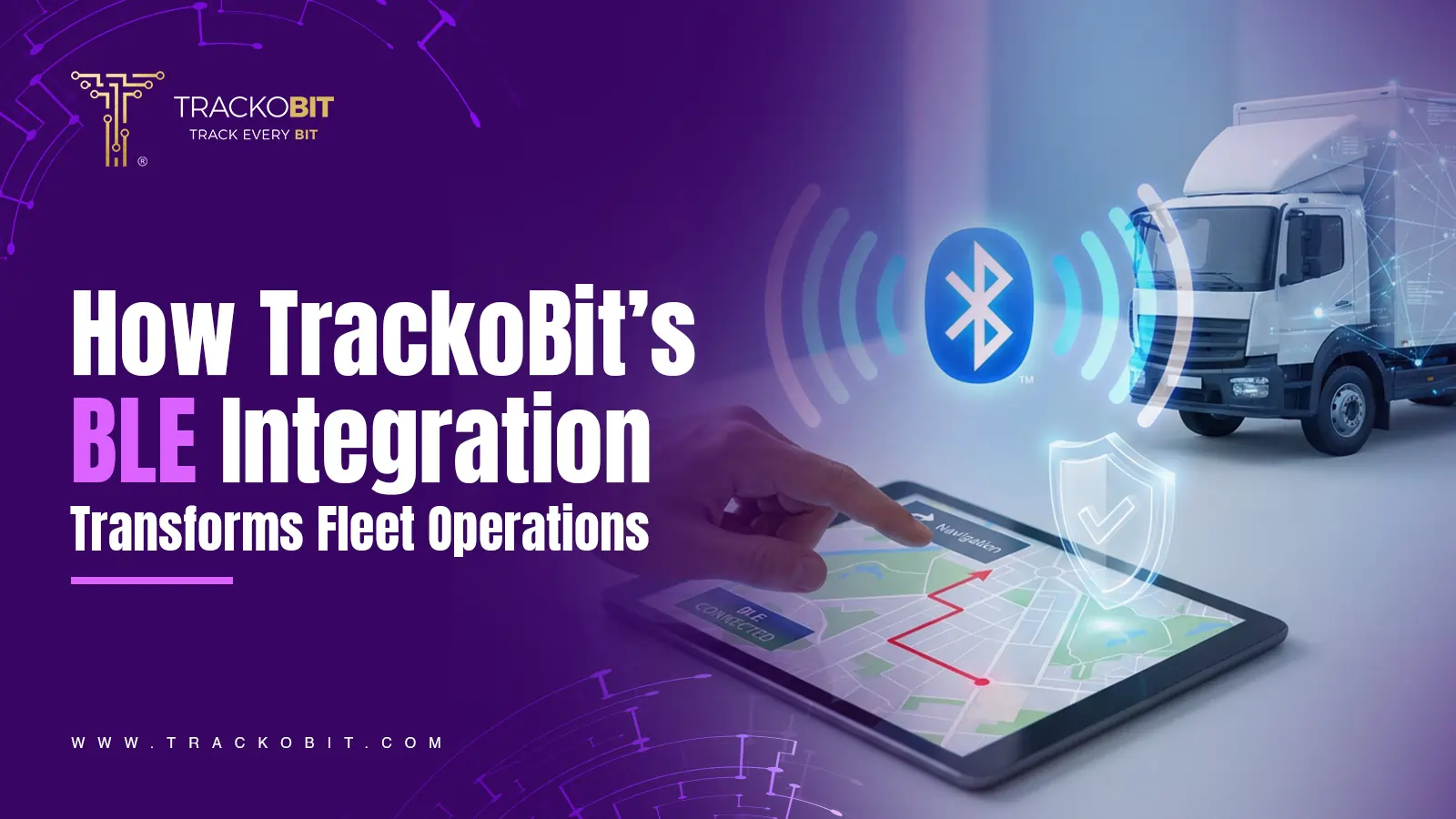
Plug, Pair, Perform TrackoBit Introduces BLE Sensor Integration
Tithi Agarwal November 26, 2025TrackoBit’s BLE Sensor Integration enables wireless, real-time monitoring with faster installs and accurate insights. It improves fleet efficiency, visibility, and…

Subscribe for weekly tips to optimize your fleet’s potential!
Your inbox awaits a welcome email. Stay tuned for the latest blog updates & expert insights.
"While you're here, dive into some more reads or grab quick bites from our social platforms!"Stay Updated on tech, telematics and mobility. Don't miss out on the latest in the industry.
We use cookies to enhance and personalize your browsing experience. By continuing to use our website, you agree to our Privacy Policy.


































